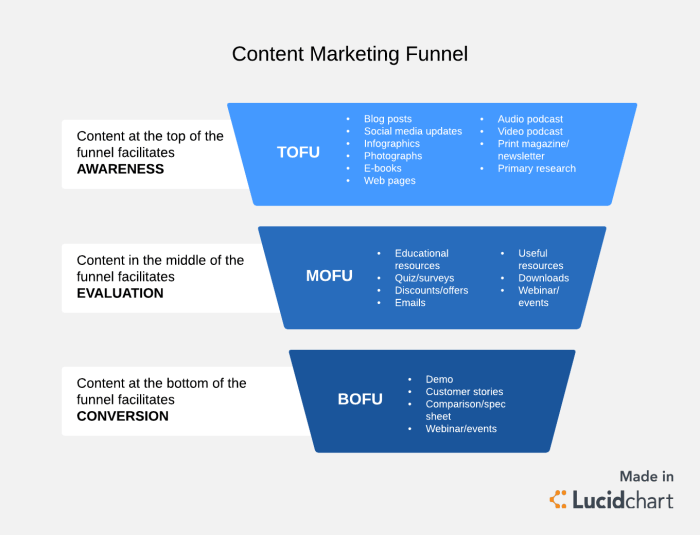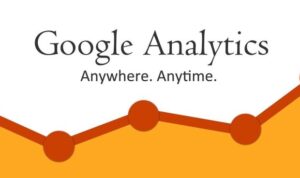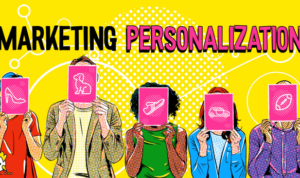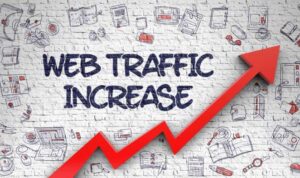Developing a Content Marketing Funnel takes you on a journey through the stages of creating a powerful strategy to attract and convert leads. Picture yourself diving into a world of innovative techniques and proven methods that will elevate your marketing game to the next level.
Get ready to explore the ins and outs of content marketing funnels and discover the secrets to engaging your audience at every step of their buying journey.
Understanding Content Marketing Funnel: Developing A Content Marketing Funnel
A content marketing funnel is a strategic framework that guides businesses in creating and distributing content to attract, engage, and convert potential customers. It consists of different stages that align with the buyer’s journey, from awareness to consideration to decision-making.
Having a content marketing funnel is crucial for businesses to establish a systematic approach to nurturing leads and driving conversions. By tailoring content to meet the needs and interests of prospects at each stage of the funnel, businesses can build relationships, establish credibility, and ultimately drive sales.
Examples of Successful Content Marketing Funnels, Developing a Content Marketing Funnel
- In the fashion industry, companies like Nordstrom use content marketing funnels to showcase new trends, provide styling tips, and promote exclusive offers. By creating engaging content through blog posts, social media, and email campaigns, Nordstrom attracts fashion-savvy consumers and guides them through the purchase process.
- In the software industry, companies like Adobe utilize content marketing funnels to educate users about their products, offer free trials, and provide tutorials and case studies. By delivering valuable content through webinars, whitepapers, and online resources, Adobe nurtures leads and encourages them to upgrade to paid subscriptions.
- In the food and beverage industry, brands like Starbucks leverage content marketing funnels to share recipes, feature limited-time promotions, and highlight sustainability efforts. Through a mix of video content, social media posts, and loyalty programs, Starbucks engages coffee lovers and drives store visits and product purchases.
Stages of a Content Marketing Funnel
In the world of content marketing, the content marketing funnel is a crucial concept that helps businesses attract and convert leads into customers. The funnel consists of several stages that guide potential customers through their journey from awareness to making a purchase decision.
Awareness Stage
At the awareness stage, the goal is to capture the attention of potential customers and make them aware of your brand, product, or service. This is where you create valuable and engaging content that addresses the pain points and challenges of your target audience. By providing relevant information and solutions, you can build trust and credibility with your audience.
- Create informative blog posts, videos, social media content, and infographics to educate your audience.
- Optimize your content for search engines to increase visibility and reach a wider audience.
- Engage with your audience through social media channels and online communities to foster relationships.
Consideration Stage
Once potential customers are aware of your brand, they move to the consideration stage where they evaluate their options and consider whether your product or service meets their needs. In this stage, it’s important to provide more in-depth content that showcases the benefits and features of your offerings.
- Create case studies, whitepapers, and product demos to highlight the value of your products or services.
- Offer free trials or samples to allow potential customers to experience your offerings firsthand.
- Use email marketing to nurture leads and provide personalized content based on their interests and behavior.
Decision Stage
The decision stage is where potential customers are ready to make a purchase decision. At this stage, it’s crucial to provide clear and compelling calls-to-action that encourage leads to take the next step and convert into customers.
- Create targeted landing pages that address specific pain points and offer solutions.
- Provide customer testimonials and reviews to build social proof and credibility.
- Offer discounts, promotions, or limited-time offers to incentivize conversions.
Creating Content for Each Funnel Stage
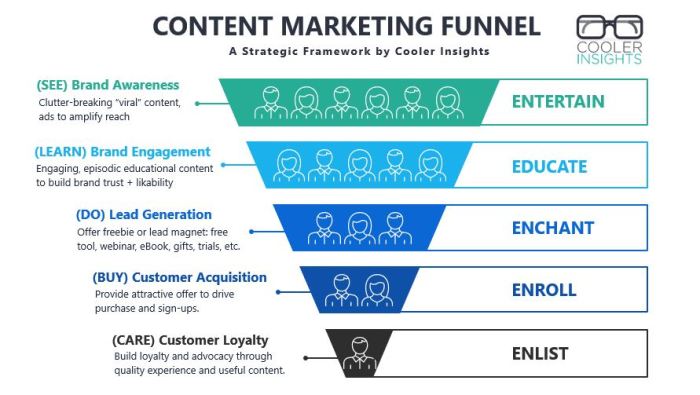
In the content marketing funnel, it is crucial to create specific types of content for each stage to effectively guide potential customers through the buying process. Let’s dive into the details of creating content for the awareness, consideration, and decision stages.
Awareness Stage Content
At the awareness stage, the goal is to grab the attention of your target audience and introduce them to your brand. Content that works best in this stage includes:
- Informative blog posts
- Engaging social media posts
- Infographics
- Educational videos
This type of content should focus on providing valuable information related to the industry or addressing common pain points of the audience without being overly promotional.
Consideration Stage Content
As leads move into the consideration stage, they are evaluating their options and looking for solutions to their problems. To nurture leads in this stage, tailor your content to:
- Case studies showcasing successful outcomes
- Product demos or tutorials
- Comparison guides
- Webinars or live Q&A sessions
The content at this stage should highlight the benefits of your products/services and demonstrate how they can address the specific needs of the audience.
Decision Stage Content
In the decision stage, leads are ready to make a purchase decision. To drive conversions, provide content such as:
- Customer testimonials and reviews
- Free trials or samples
- Limited-time offers or discounts
- Interactive content like quizzes or assessments
This content should build trust with the audience, address any remaining concerns, and encourage them to take the final step towards making a purchase.
Tools and Strategies for Developing a Content Marketing Funnel
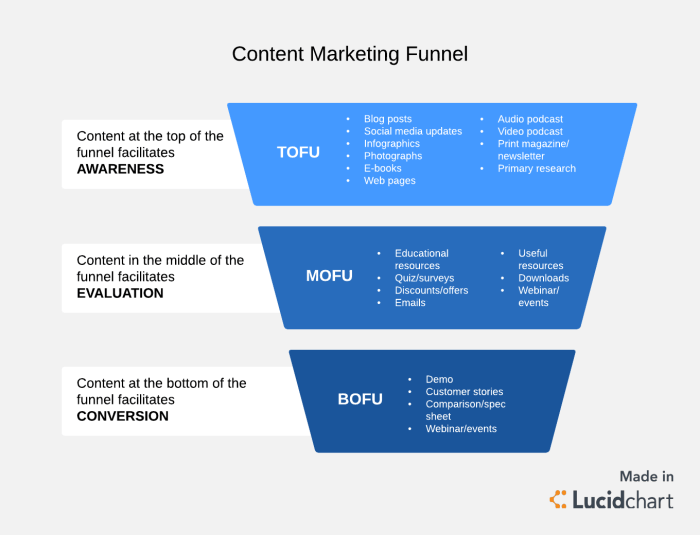
Developing a successful content marketing funnel requires the right tools and strategies to attract, engage, and convert leads into customers. Let’s explore essential tools and effective strategies to optimize each stage of the funnel for better results.
Essential Tools for Creating and Managing a Content Marketing Funnel
- Customer Relationship Management (CRM) software to track customer interactions and behavior throughout the funnel.
- Email marketing platforms for sending personalized content to leads at different stages of the funnel.
- Social media management tools to schedule posts, engage with followers, and analyze social media performance.
- Analytics tools like Google Analytics to track website traffic, user behavior, and conversion rates.
- Content management systems (CMS) for creating, publishing, and managing content across different channels.
Strategies for Optimizing Each Stage of the Funnel
- Top of the Funnel (TOFU): Focus on creating awareness through educational content, blog posts, and social media engagement to attract new leads.
- Middle of the Funnel (MOFU): Provide valuable content like case studies, whitepapers, and webinars to nurture leads and build trust.
- Bottom of the Funnel (BOFU): Offer product demos, free trials, and personalized content to convert leads into customers.
The Role of Analytics in Refining and Improving the Content Marketing Funnel
Analytics play a crucial role in understanding the performance of your content marketing funnel. By analyzing data on website traffic, conversion rates, and user engagement, you can identify areas for improvement and make data-driven decisions to optimize the funnel.
